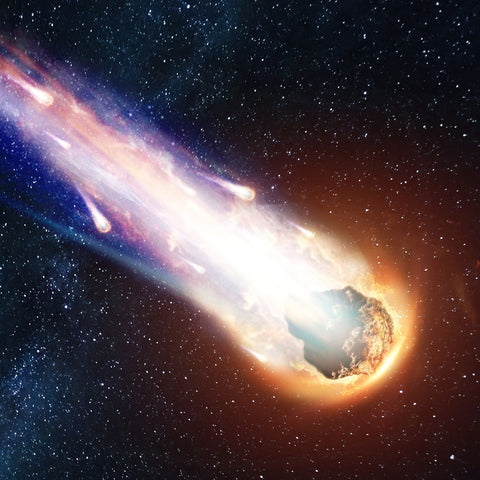
How Comets Could Be the Key to Life on Other Planets
The enigma of life's origin on Earth has long captivated scientists. A compelling theory posits that comets, those icy celestial wanderers, may have been pivotal in delivering the essential building blocks for life to our planet. This intriguing hypothesis has gained traction with recent research from the University of Cambridge, shedding light on how comets could play a similar role in seeding life across the galaxy.
Comets: Harbingers of Life's Ingredients
The study, published in the journal Nature Communications, zeroes in on glycine, a simple yet crucial amino acid found in proteins. Glycine's presence in comets and its resilience in harsh space conditions have been established by prior research. The Cambridge team's simulation of a comet impacting a planetary surface reveals that the resulting heat would vaporize glycine, dispersing it across the planet. This distribution mirrors the amino acid patterns observed on Earth, bolstering the theory that comets could have been instrumental in delivering life's precursors here.
The Galactic Odyssey of Comets
Delving deeper, the researchers identified key conditions for comets to successfully transport organic material. Crucially, comets must travel at relatively slow speeds, below 15 kilometers per second, to prevent the disintegration of vital molecules upon impact. This scenario is most likely in 'peas in a pod' planetary systems, where closely orbiting planets can slow down and 'bounce' comets from one orbit to another, eventually leading to a gentle enough impact to deposit intact prebiotic molecules.
Implications for Exoplanetary Life
This groundbreaking research opens new avenues in the quest for extraterrestrial life. By understanding the types of planetary systems and conditions conducive to comet-based molecular delivery, scientists can refine their search for life beyond our Solar System. The study suggests that systems with closely packed planets orbiting stars similar to our Sun are prime candidates for such comet-induced seeding of life.
Conclusion
The University of Cambridge's research offers a fascinating glimpse into the cosmic journey of life's building blocks, championed by comets. While not asserting that comets are necessary for life's origin, the study provides a compelling argument for their potential role in spreading the seeds of life across the galaxy. As we continue to unravel the mysteries of our universe, the notion of comets as cosmic couriers enriches our understanding of life's possible proliferation beyond Earth.


